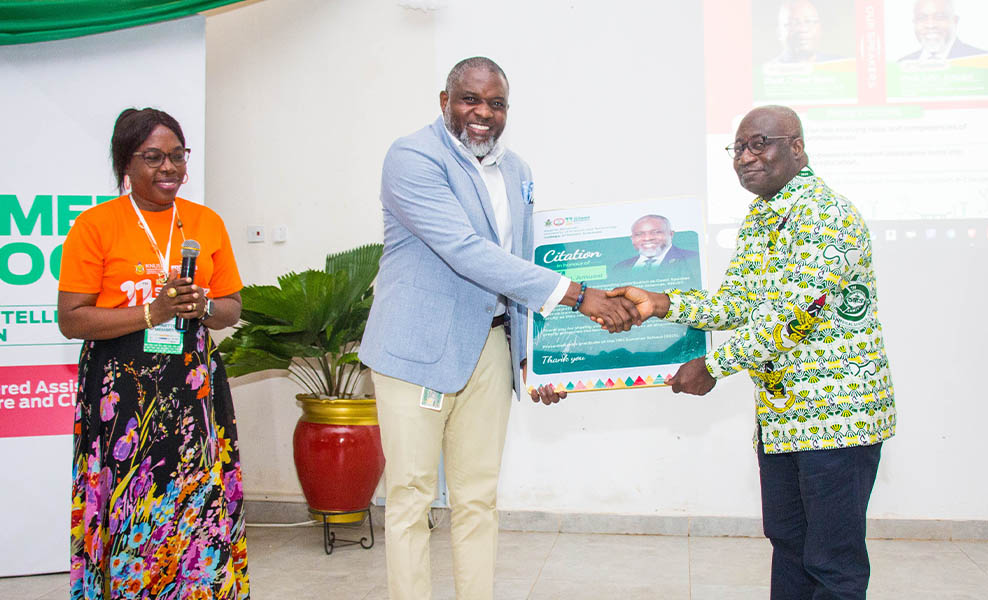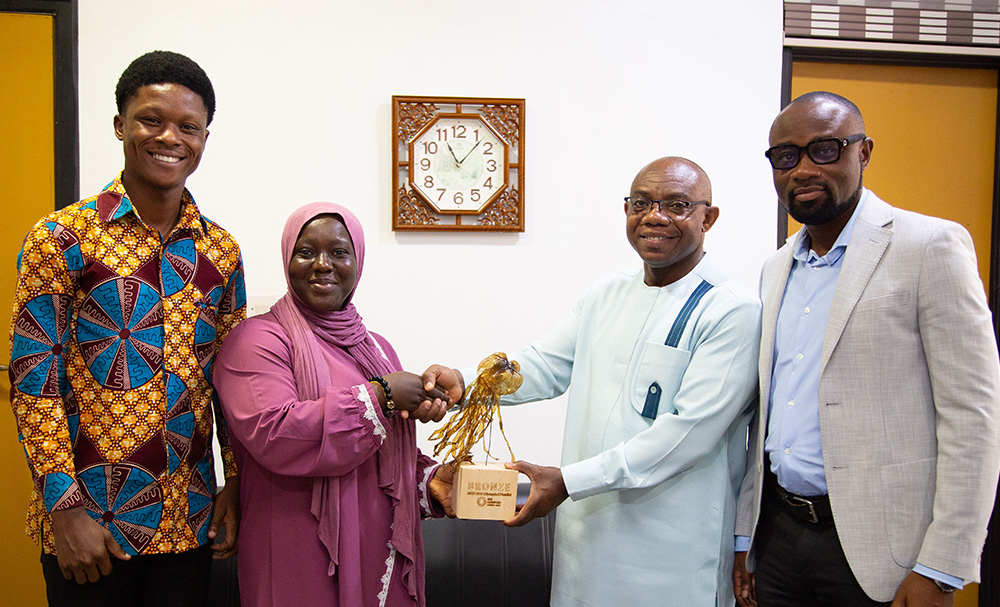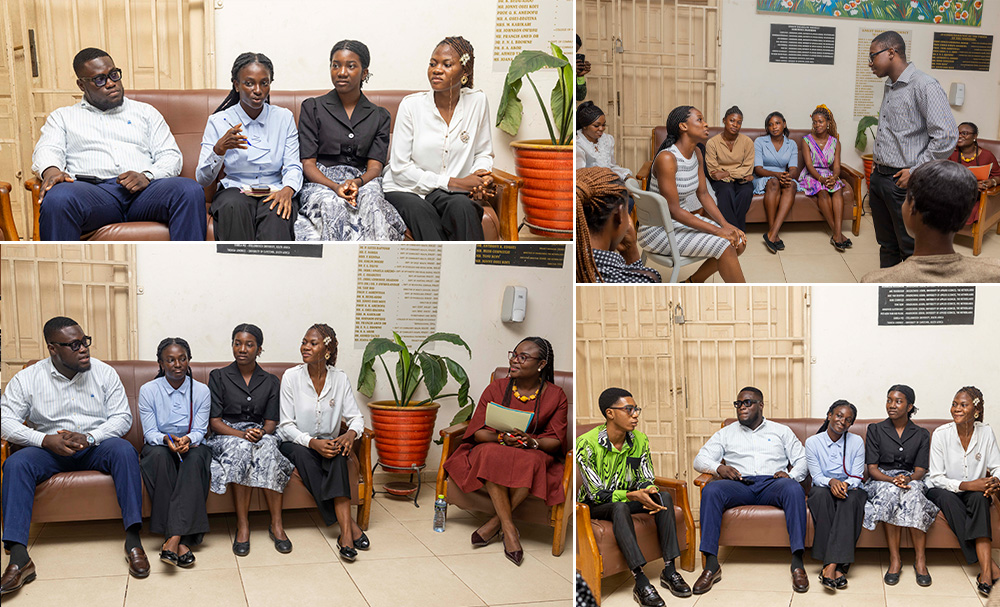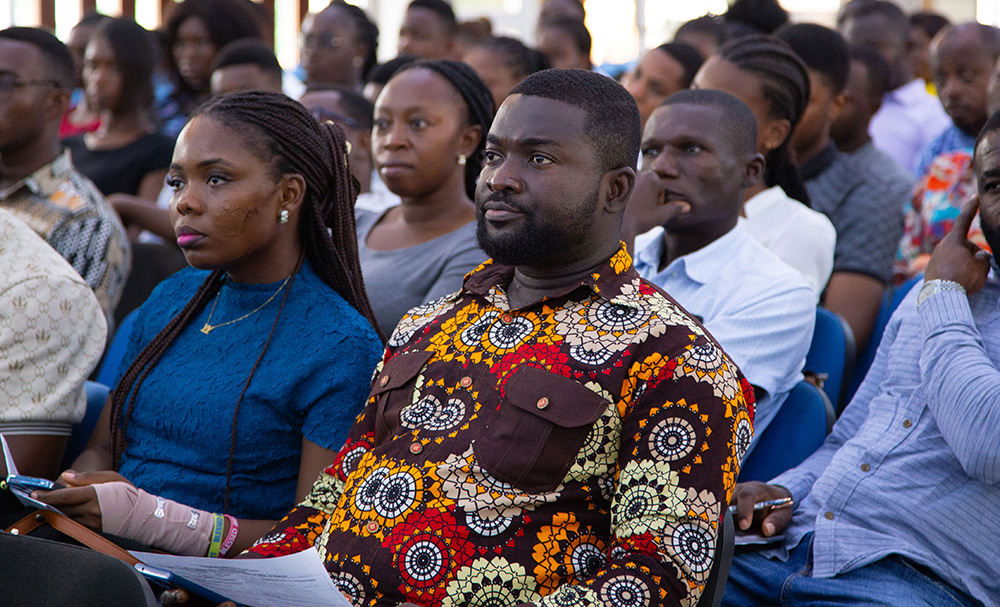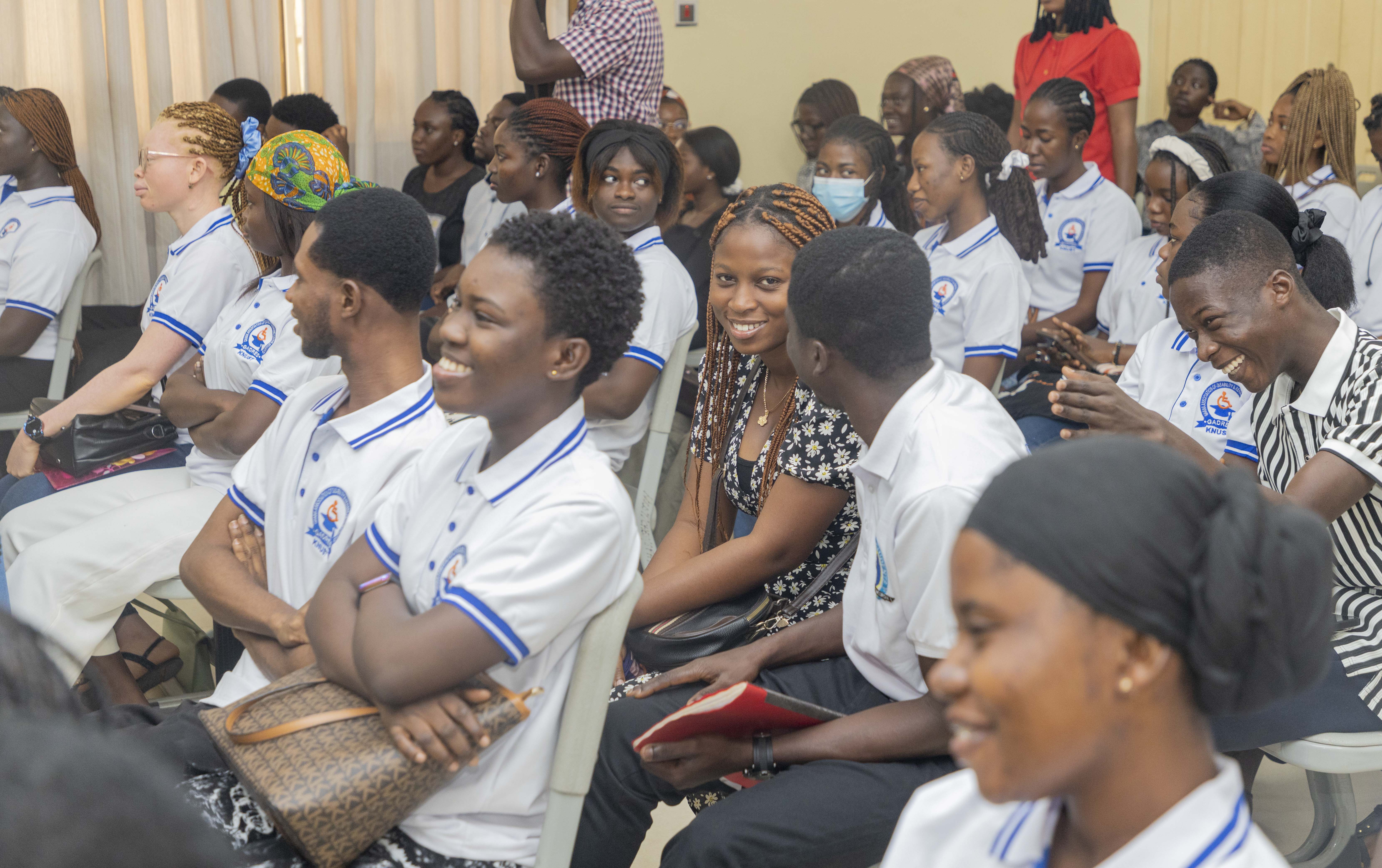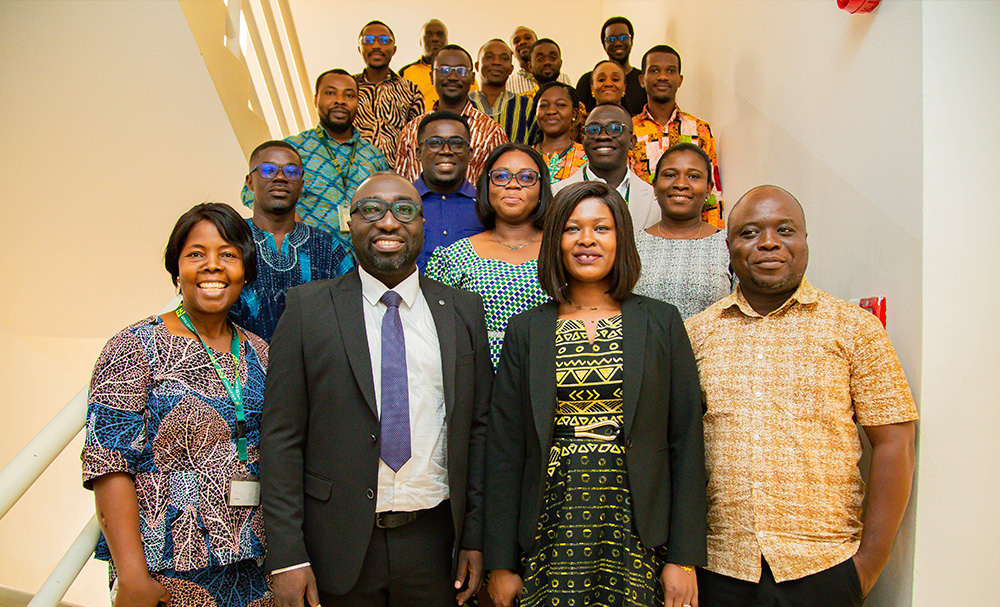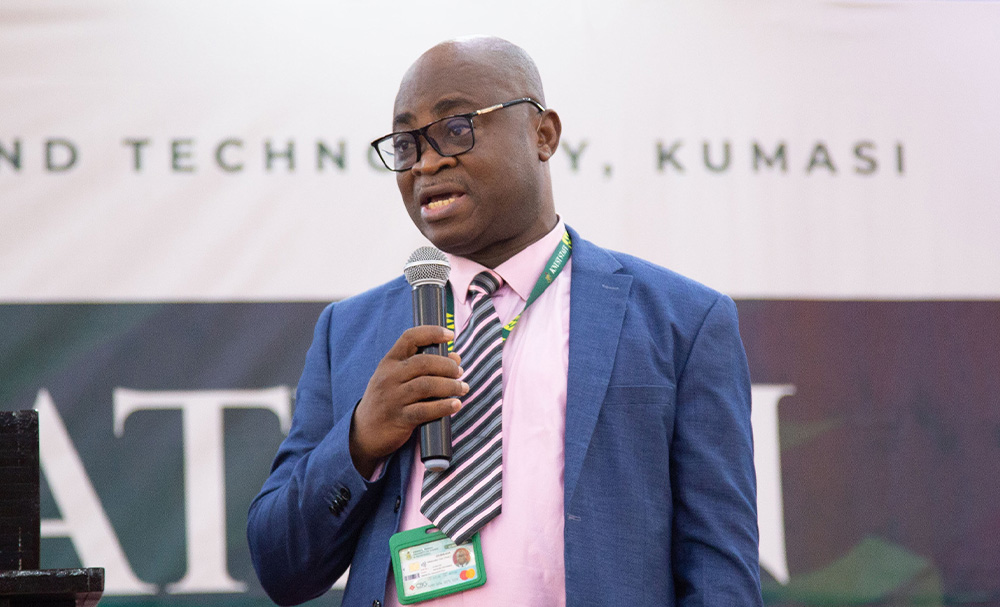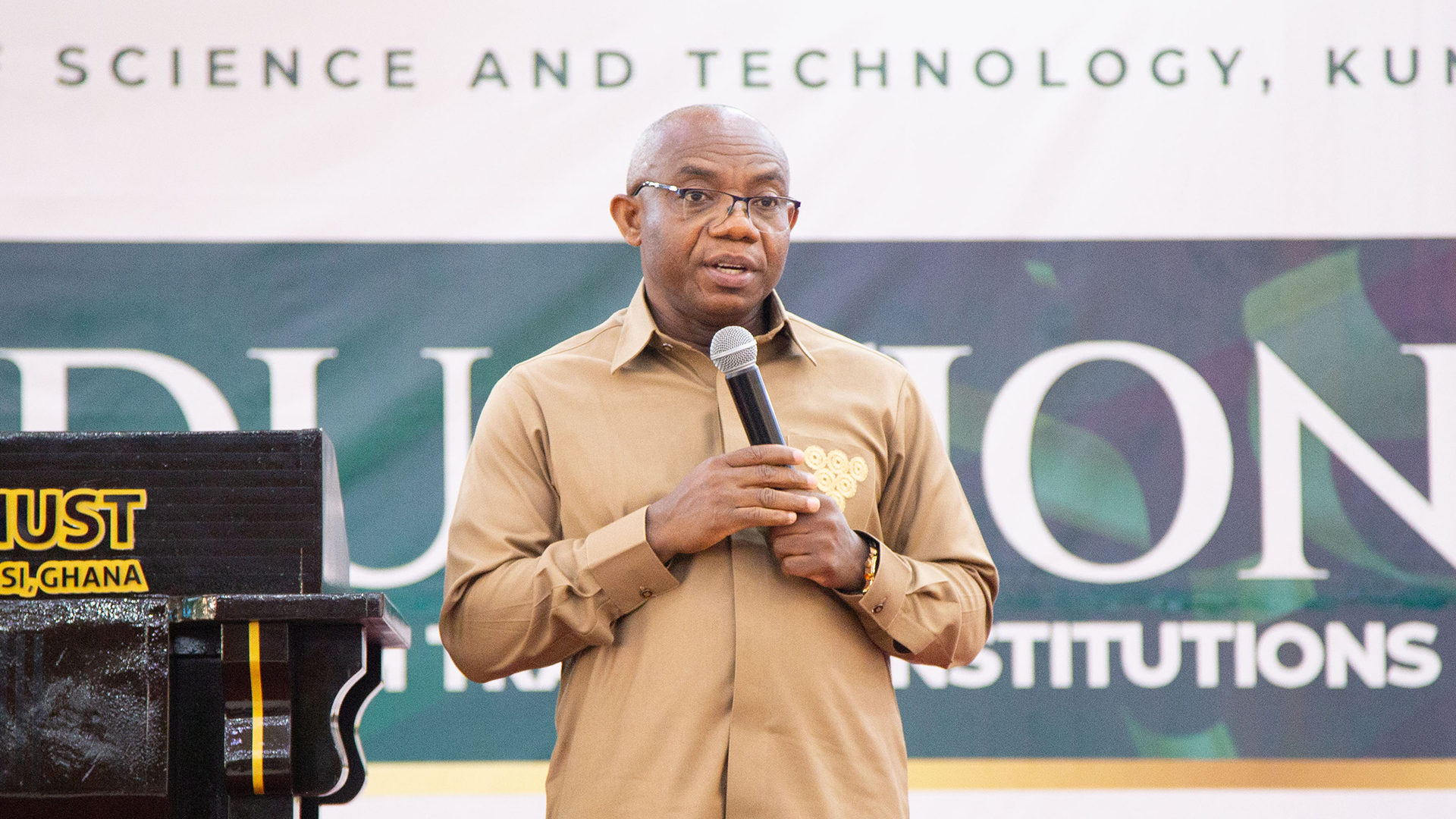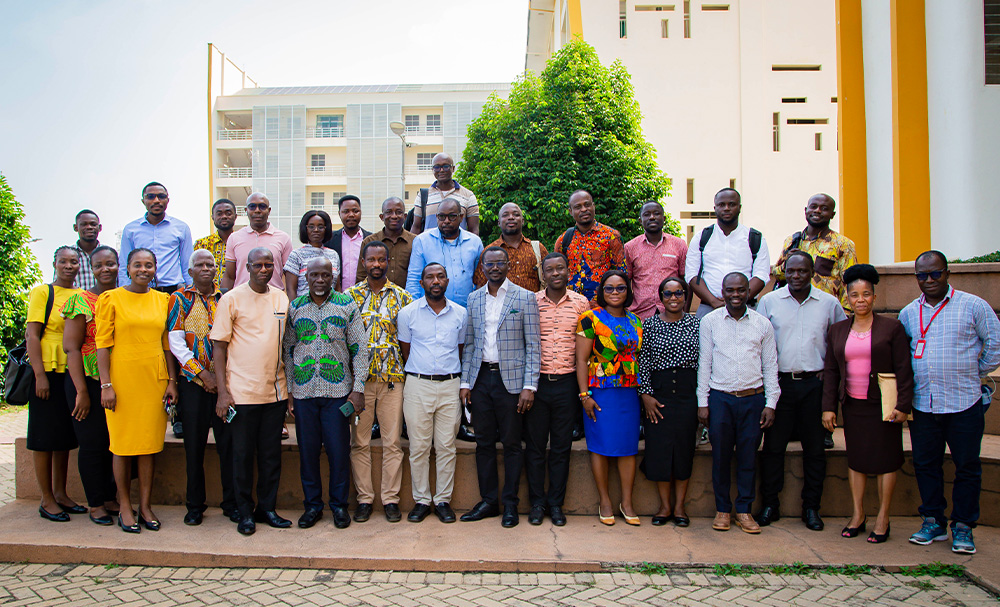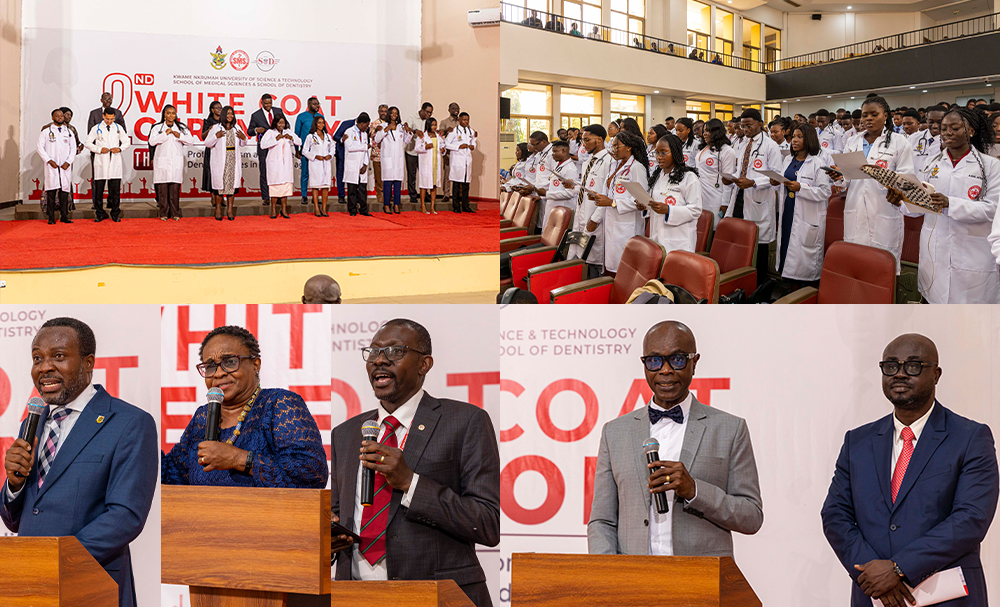KNUST College of Health Sciences Explores Use of AI Tools in Health Education
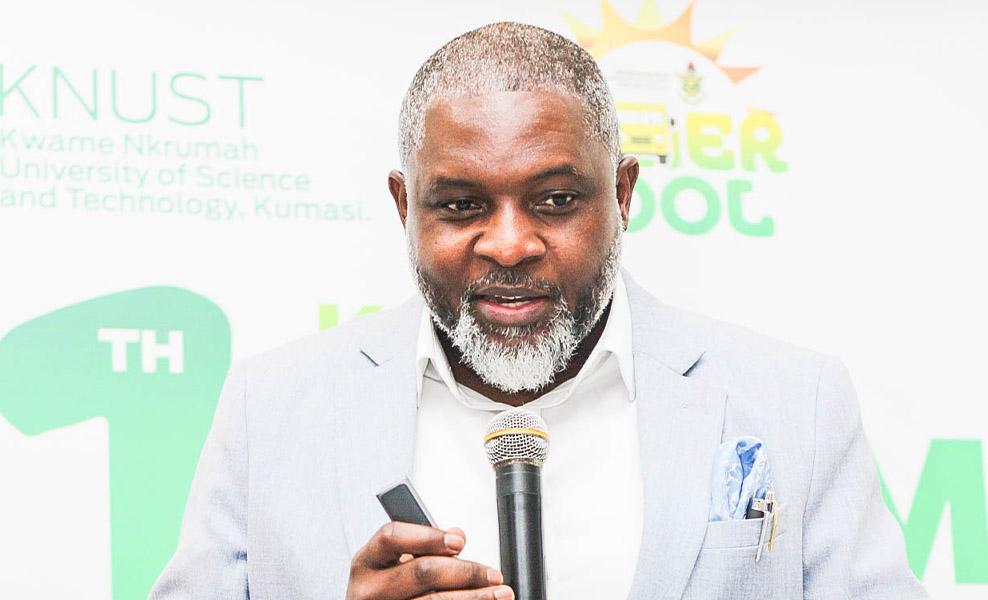
The second day of the KNUST College of Health Sciences Summer School focused on the growing use of Artificial Intelligence (AI) tools in health science education.
The event formed part of activities under the College’s theme, “Integrating AI-powered Assistance Tools into Healthcare and Clinical Training.”
Delivering a presentation on “Integrating AI-powered Research Assistance Tools into Health Science Education,” Prof. John H. Amuasi of the Department of Global Health, School of Public Health, took participants through practical ways AI can be integrated into teaching, research, and clinical learning.
Prof. Amuasi stressed the growing importance of AI in academia and professional healthcare practice.
“AI is here to stay
“We must learn to use it responsibly and effectively to enhance our teaching, research, and clinical work,” he said.
He urged faculty to embrace AI, noting that the technology can simplify many academic and professional tasks.
“We need to adopt AI; it will make our work easier,” he advised.
His session covered how AI can support simulation and experiential learning, provide personalized feedback and tutoring, and strengthen systems and interpersonal training.
He also discussed ethical and practical concerns about the use of AI in education and research.
Prof. Amuasi demonstrated popular AI platforms, including ChatGPT, Gemini, Copilot, and Notebook LM, showing how they can assist students and faculty in research and clinical training.
“It’s all about the right prompt
“The quality of your results depends on how well you guide the tool. When you feed it with garbage, it will give you garbage,” he explained.
As part of the day’s activities, participants also spent time with physiotherapists.
During this interactive session, faculty were taken through proper posture and ergonomics techniques aimed at preventing work-related musculoskeletal disorders.
The session emphasized the importance of maintaining good physical health, especially for academic staff who spend long hours teaching, researching, or working on computers.
The session ended with remarks from the Provost of the College of Health Sciences, Prof. Christian Agyare, who said,
“Scientists are making life easier for us, but how do we come on board? We need to change the notion that AI is making our students lazy. We need to harness what we have; let’s take advantage of AI.”
